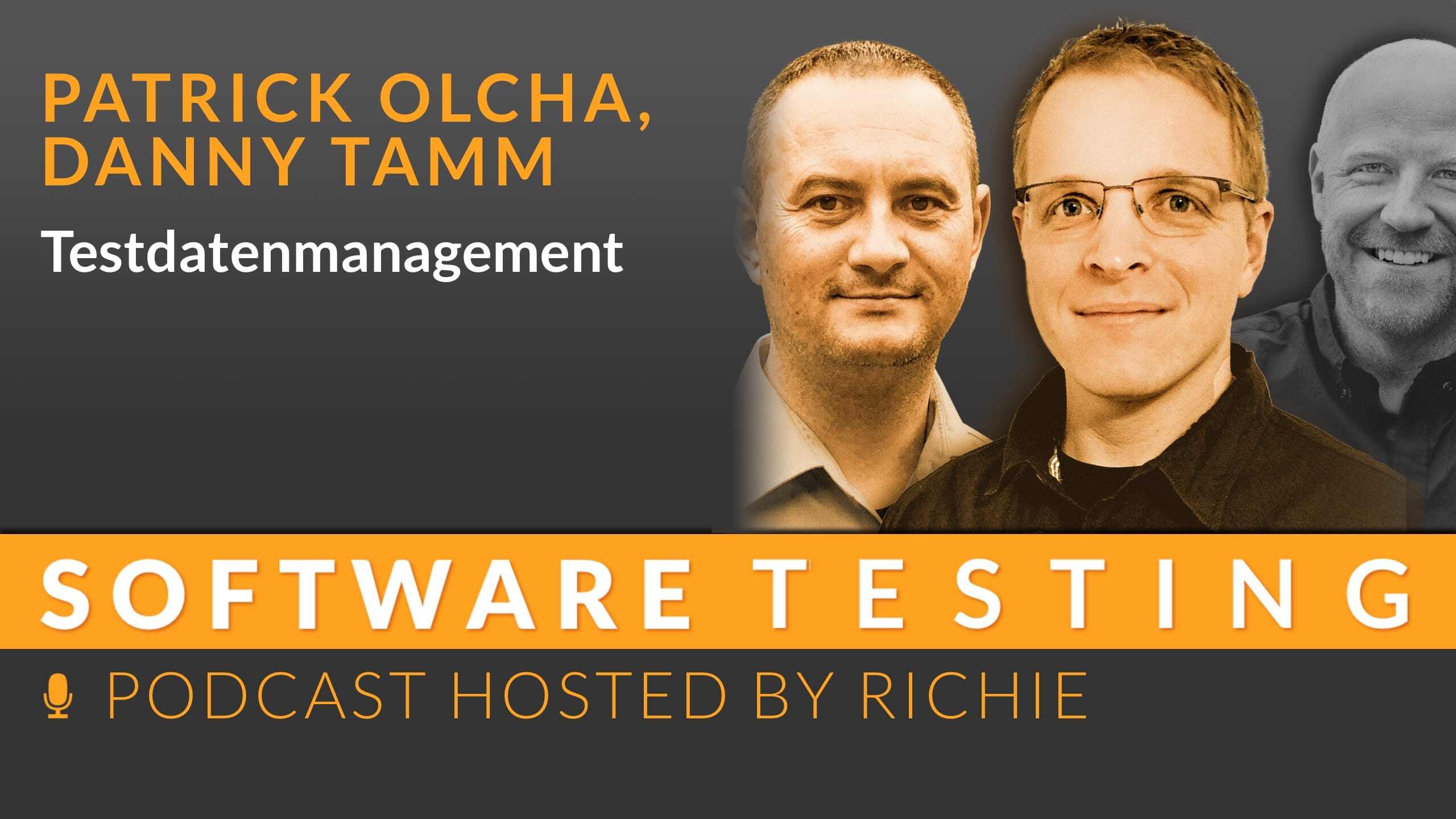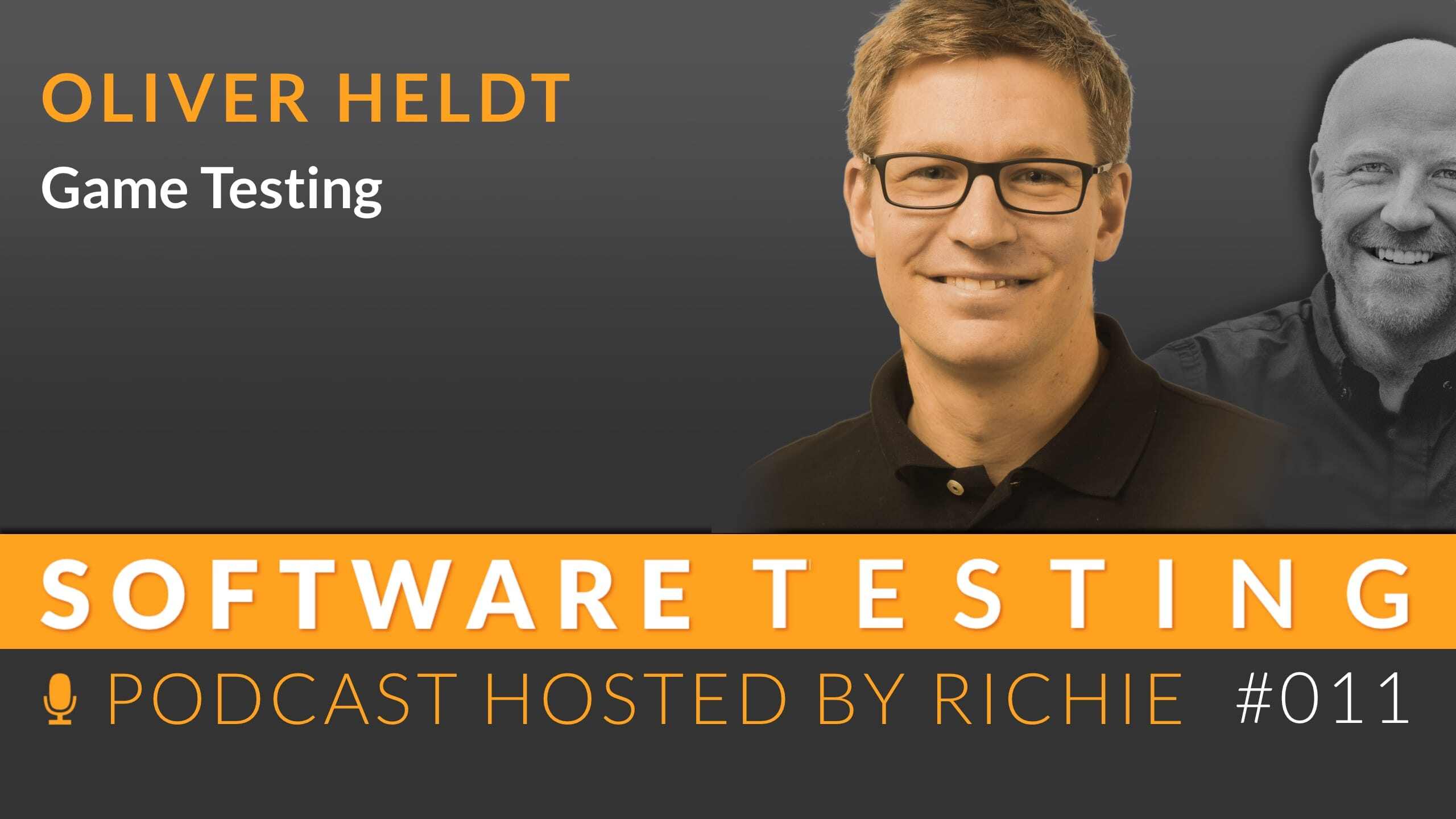Game Testing
Oliver introduces us to the exciting topic of how to actually test computer games. Specifically, we talk about the MMORPGTibia. He talks about the...

Test data - a tiresome topic for many companies, especially when it comes to cross-system provision. It must be complete, otherwise the tests will not run. The quality of the test data is also important: if it is not representative, up-to-date and relevant for the respective test cases, the tests will not deliver valid results. Depending on the industry, there are different challenges for the management of test data. In this episode, we take a look at how Union Investment has moved towards structured test data management.
“The concept is simply that the end users - i.e. testers, in this case - have a web interface, like in an online store in principle, where they can specify which data is needed” - Danny Tamm, Patrick Olcha
Danny Tamm has been working as a developer and consultant at UBS Hainer GmbH for 20 years. Initially he specialized on the IBM mainframe and DB2 z/OS as a developer and supporter of various tools. For several years now, he has been involved in test data management on decentralized systems, advising customers on setting up test data management systems and supporting these systems. He also gives lectures and presentations on the subject.
Patrick Olcha obtained his degree in business informatics through a dual study program at the Mannheim University of Cooperative Education and began his career at Delta Lloyd Versicherung in Wiesbaden, where he managed his first test projects. After moving to R+V Versicherung and Union Investment, he took on extensive responsibility in the testing process. With more than ten years of experience, he has specialized in test environment and test data management, using both proprietary and commercial solutions.
Highlights of this episode:
Further links:
Today I talk to Patrick Olcha from Union Investment and Danny Tamm from UBS Heiner about the challenges and solutions in the area of test data management. Their story offers valuable insights into the transformation of test data processes and how they were able to implement efficient, cross-system test data management.
Today I would like to welcome my guests Patrick Olcha from Union Investment and Danny Tamm from UBS Heiner. We talked about the topic of test data management - an area that poses major challenges for many companies. Patrick shares his experience of how he redesigned and implemented test data management in his company to overcome the inefficient processes of the past. This introduction provides the perfect starting point for an in-depth exploration of the complexity of the topic.
Patrick takes us through his professional journey and explains how the topic of test data emerged as a fundamental challenge. From inconsistent parameters between production and test systems to the difficult task of providing environments with fresh data, Patrick shared in detail the difficulties he faced. His story underlines the importance of a solid database for meaningful test results.
The search for a more efficient solution led Patrick and his team to explore the market. They encountered challenges such as performance-related limitations and manual errors that occurred during data transfer. Patrick shares insights into their requirements for a new system that not only supports diverse data management, but also offers a greater ease of use.
Danny explains the innovative concept of ‘data ordering’, which allows end users to request required data via a simple web interface. This solution enables users to independently select data and transfer it to target environments as required - a milestone in the simplification of test data management.
Patrick reports on the positive feedback from the first user group, who are enthusiastic about the new possibilities. Particularly highlighted features are the self-execution of certain processes and new functions such as the targeted deletion of individual data records. This direct feedback underlines the value of the implemented solution for daily workflows.
Finally, Patrick shares his vision for the further development of the system. He emphasizes the desire for broader use within the organization as well as adding more systems to the platform. The goal is to fully automate manual processes and thus further increase efficiency and user-friendliness.

Oliver introduces us to the exciting topic of how to actually test computer games. Specifically, we talk about the MMORPGTibia. He talks about the...

Introduction Test management is a crucial part of the software development process. It ensures the quality and functionality of software products...

How to get out of the hangover of an agile transformation and which proven models from the past help to better understand and implement change?...